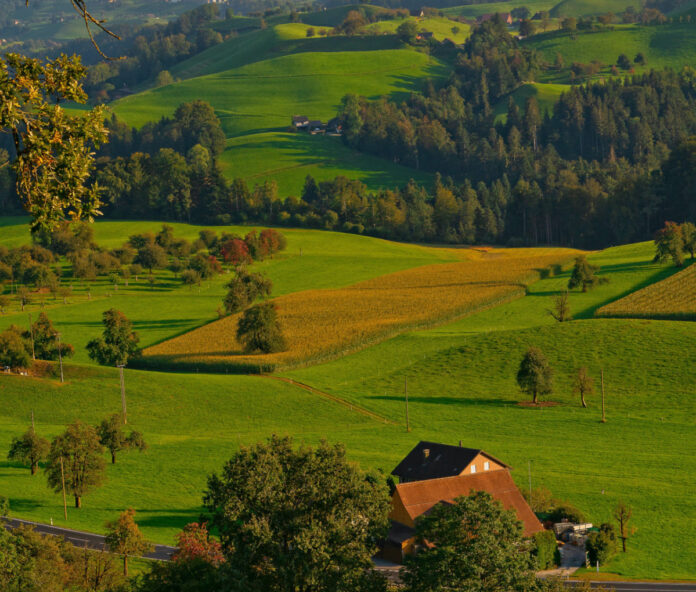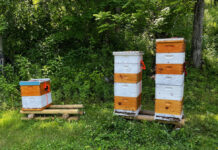
After I became a prepper more than 25 years ago, I realized New York City was not the right place to be a prepper, so I left for a smaller city. In all honesty, it was still one of the 100 largest cities in the United States, but it was well down the list. I compensated by living lived in the suburbs. Later, I moved to a much smaller city and lived even further outside it. We lived in what I would call the exburbs, a place where there were two-lane country roads, no sidewalks, and you had to drive a few miles to reach a convenience store. Only last year did we finally move to the country.
I’ve always known that living in the country was the best bet for long-term survival in any kind of serious SHTF situation. It was always a long-term goal to get there. It just took 25 years and four or five steps.
What stopped me from moving to the country sooner? Money and employment opportunities. I worked in an industry that employed many highly educated scientists, so the companies were often located in cities with prominent universities.
In the long run, not moving any sooner worked out. There were no earth-shattering emergencies or society-ending catastrophes, and I was lucky enough to have left New York before 9/11.
Today, I’m not sure we have another 25 years. Sometimes, I wonder if we have two or three.
Why the Country?
One of the biggest problems with survival in an urban or suburban environment after a SHTF disaster is the ration of population density to resources. In the city, everything has to be shipped in, from food to goods. Natural gas is piped in, water often comes from somewhere else, most cities have some electrical generation capabilities but rely on electricity from elsewhere. When some disaster hits, there will not be enough around and there will be no way to get it to the city and distributed. Cities will become traps where the rats trapped within turn on each other as they fight for scraps.
The country not only has far fewer people per square mile, rural locations often have the means of production when it comes to food. Granted, farmers in my neck of the woods don’t grow much wheat, but they grow cow corn, and that’s a start. They have livestock. Many residents have gardens. The wilderness can also provide. Firewood is also more plentiful than in the city or manicured suburb. There are also more water sources, at least in the Eastern half of the country.
Country folk are also better prepared than most urban dwellers, because their lifestyle requires self-sufficiency. They have canners and pantries full of canned goods. They hunt, fish, and are at home in the woods. Around here, they stock up because winters can be long. Country residents are also prepared to defend themselves because the sheriff may be miles away.
Retreat vs. Permanent Residency
When I was a young prepper, having a retreat was considered sufficient. You didn’t need to own it, you just had to have a place you could bug out to. We did, and we pre-positioned what amounted to two full pickup truck loads of gear there. Was it ideal? No, but if there was a societal collapse, it was better than any of the places we lived.
Today, a retreat is still a viable option, but it is not a permanent solution. Getting to your retreat is a huge obstacle. If the Yosemite caldera blows up, if there is an EMP strike, if there’s a limited nuclear war, or if any of one hundred other calamities occur, it may trap you in the city. Heck, when the Omega variety of COVID hits, they may shut down the highways and declare martial law.
A Second Chance
If I was suddenly 30, married, and had a young child or two, this time around I would not stay in the city. Knowing what I know today, I would buy somewhere between 60 and 200 acres and start a small farm raising free-range chickens for eggs, free-range meat chickens, pasture-fed pigs, sheep to sell lambs as meat, maybe a small herd of cows, a couple dozen bee hives, and a few acres of garden. I would plant a small orchard with fruit trees for our personal use and maybe put in a couple hundred blueberry bushes and have a you-pick operation. Joel Salatin would be my guru; I’d start with chickens and build step-by-step when we had the funds to do so.
Rather than directly compete with farms and ranches with tens of thousands of acres, I would be different and offer locally grown, pasture-raised animals that never see a cage or a feed lot.
You can do this on a smaller scale and still hold a day job. Remote work makes this kind of living possible for many people who work at a desk rather than in a lab on in the field.
What’s Holding You Back?
I expect the answer to that question is the same today as it was in my day: Money. You never have enough of it, and your family wants material things. But that’s because it’s the only life they know; they are trapped in it like a bug in amber.
If retirees can shelve their lives, sell their belongings, and hop into an RV and cruise the country, why can’t you move to the country instead of living in that cramped apartment or one-sixth acre plot in the development where all the houses look the same? As I said two days ago in the post about overcoming obstacles to prepping, being a serious prepper is a lifestyle choice.
Admittedly, it took me 25 years to move; learn from my experience.
The best way to get out of Dodge is to not live there in the first place.






